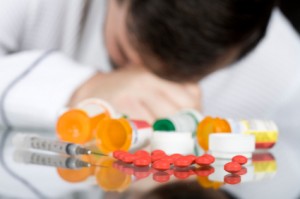5 Medical Reasons you Might be Abusing Stimulants
Stimulants are highly addictive substances that speed up your metabolism and make you feel more energetic. There are a variety of medical conditions that are associated with stimulant use. Unfortunately, there are some people who instead of going to a doctor will begin to use stimulants as a form of self medication. This self medication often becomes abuse. Some of these illnesses are more common than others.
1. You have ADHD
Although ADHD is treatable using stimulants, many people who have a prescription become tolerant to the drug. They take more than prescribed to deal with the tolerance and increase their medication on their own. This causes abuse and addiction.
Some people who have ADHD will self medicate with stimulants. They feel the lack of concentration, hyperactivity, and uncontrollable impulsiveness and take stimulants because they help with these symptoms. This unregulated self medication quickly leads to stimulant abuse and addiction.
2. You Suffer From Depression

Taking stimulants for depression leads to a vicious cycle of abuse, as the drugs actually make this condition worse.
There are hundreds of things that people do to self medicate for depression. Most of these things are relatively harmless but some of them are extremely dangerous. Some people mistakenly think that stimulants can help with their depression because it gives someone who is fatigued energy.
If you are self medicating the medication you are taking probably will not treat your depression. There is a reason why they do not use stimulants to treat depression. Stimulants may make depression worse. When you take stimulants for depression, you will find yourself needing more and more of them to accomplish the same effect. This creates abuse and addiction.
3. You Suffer from Social Anxiety
Again this is usually a case of self medication for a mental disorder. Stimulants make people feel self confident. When you feel self confident, social anxiety decreases so it is easy to see why people try to use stimulants in this manner.
Unfortunately, stimulants are highly addictive and tend to increase anxiety over time. This leads to taking more stimulants to counteract the anxiety which rapidly leads to stimulant abuse and addiction.
4. You have a Sleep Disorder
Sleep disorders cause fatigue. Some people choose to use stimulants to try and counteract the fatigue. This is not entirely wrong. Some doctors prescribe stimulants to help with fatigue but under very controlled circumstances. When you take stimulants particularly when your sleep disorder is not diagnosed, you usually wind up abusing them.
According to the Centers for Disease Control, stimulants such as ADHD medication, caffeine, and amphetamines can cause sleep disorders. Even though they might keep you awake, they contribute to the very thing that you want to prevent.
Are There Any Pharmacological Treatments for Stimulant Abuse?
5. You have Body Dysmorphic Disorder or an Eating Disorder
If you have body dysmorphic disorder or another eating disorder, it is very easy to start using stimulant diet drugs to further your weight loss. Most stimulant based diet drugs are physically addictive and because you are suffering from an eating disorder you will go over the recommended amount to lose the weight.
Finding Help for Stimulant Abuse due to a Medical Condition
If you find that you are addicted or abusing stimulants because of one of these medical conditions, help is available. All you have to do to find help is call 800-605-6597 Who Answers?.



